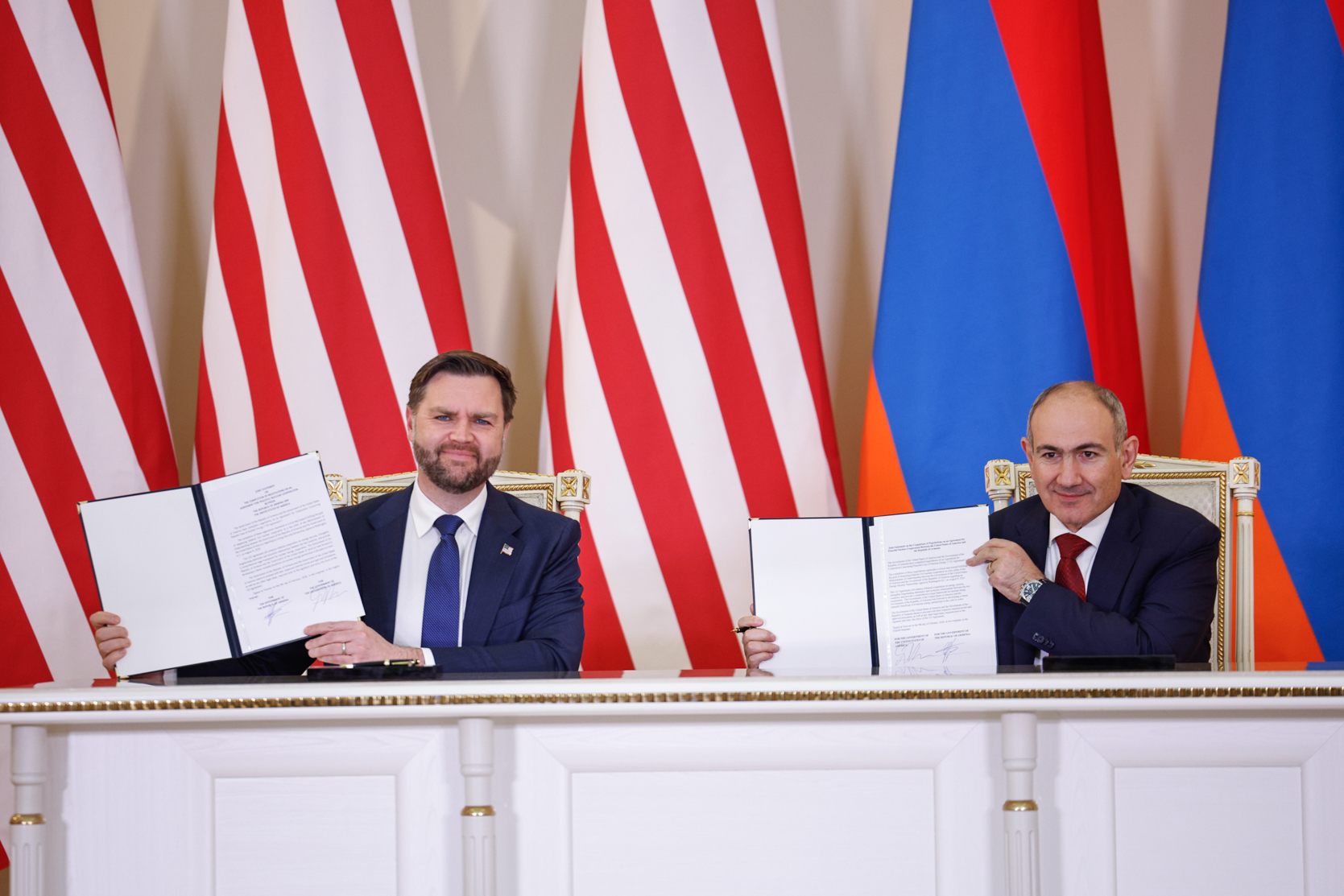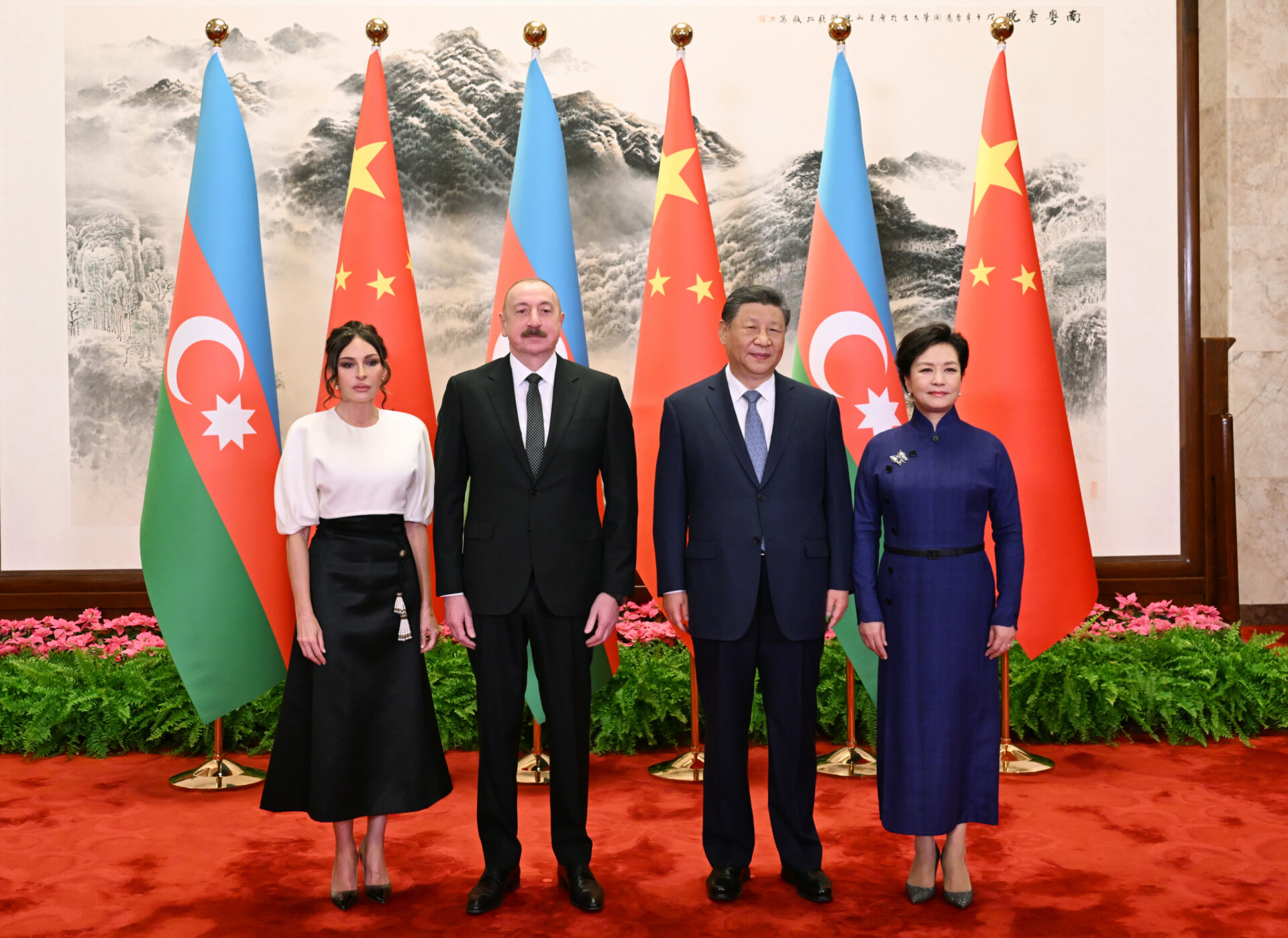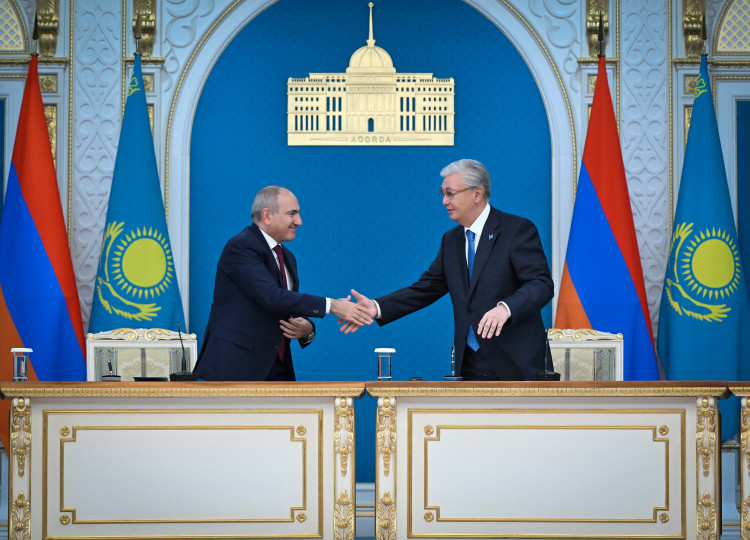
Azerbaijan Expands Ties With China and Iran, Benefiting Moscow and Hurting West
Azerbaijan Expands Ties With China and Iran, Benefiting Moscow and Hurting West
Executive Summary:
- In the last two weeks, Azerbaijan’s ties to China and Iran have warmed significantly, with Baku and Beijing declaring a strategic partnership and Baku and Tehran announcing the reopening of an Azerbaijani embassy in Iran.
- In the South Caucasus, these accords will affect the development of both east-west and north-south transit routes, raising the importance of Azerbaijan at Armenia’s expense, as well as shifting the balance of power in the region.
- More broadly, by bringing Baku into a closer alliance with the anti-Western group of countries Moscow has promoted, these moves strengthen Russia and undercut the West’s position in the Caucasus and beyond.
Two developments over the past couple of weeks reflect the reordering of geopolitics in the South Caucasus since Azerbaijan expelled Armenian forces from its territory. Both events are likely to intensify that trend, with consequences not only for the countries in the region but also for the international order. At the Astana meeting of the Shanghai Cooperation Organization on July 4, Azerbaijani President Ilham Aliyev and Chinese Communist Party General Secretary Xi Jinping signed a declaration of strategic partnership that calls for their two countries to work more closely economically, militarily, and strategically (TASS, July 3). Additionally, on July 15, after more than a year of talks and on the heels of the election of the new Iranian president, Masoud Pezeshkian, a reformer and ethnic Azerbaijani, Iran allowed Azerbaijan to reopen its embassy in Tehran, a facility that had been shuttered since a terrorist attack in January 2023 (Vestikavkaza.ru, July 15). In bolstering relations with China and Iran, Baku is shifting the power balance in the South Caucasus, weakening the West’s position and potentially offering Moscow an opening to reassert its influence.
The first of these developments reflects China’s longstanding effort to expand its influence in the Caucasus to ensure the east-west transit of goods between itself and the West and to counter the expansion of Türkiye’s role in the region (see EDM, April 30, May 29, 2019). Azerbaijan is particularly interested in playing up ties with China to express displeasure with the West for what Baku sees as an overly pro-Armenian stance of some Western countries. In doing so, Baku hopes to demonstrate that Azerbaijan has more room for maneuver than many assume (Trend.az, July 8; Sng.fm, July 16). The second development, in contrast, is the latest move in the complicated history of relations between Azerbaijan and Iran. The two countries have often been at odds not only because of their different attitudes toward Türkiye but also because of Baku’s support for secularism, its close relations with Israel, and the existence of ties between the Azerbaijanis of the Republic of Azerbaijan and the Azeris of the Islamic Republic of Iran (Vesti.az, July 8; Vestikavkaza.ru; Sputnik Azerbaijan, July 15; for background, see EDM, March 27).
Azerbaijani and Chinese commentators are already suggesting that the declaration of strategic partnership will affect relations between the two countries across the board (Vesti.az, July 6; Vpoanalytics.com, July 15). Other observers argue that the reopening of the Azerbaijani embassy marks the dawn of a new era in relations between Baku and Tehran (Trtrussian.com, July 15). Thus, while the underlying problems that have plagued these relationships may continue to matter more, the combined impact of these two developments on geo-economics and especially geopolitics in the South Caucasus, as well as on East-West relations more generally, is certain to be enormous.
All three of the countries in the South Caucasus will be affected. Azerbaijan will gain more freedom of action as a result of Chinese investment and support and may be able to make more progress toward the opening of the Syunik/Zangezur Corridor as a result of improved ties with Iran (see EDM, March 7, October 11, 2023). At the same time, however, Baku will face more difficulties in developing its close relationship with Türkiye, given the continuing conflict between Ankara and Tehran, and in maintaining its special relationship with Israel, given Iranian hostility to the Jewish state (see EDM, April 18, May 8, 2023). Armenia will likely lose both Chinese and Iranian support for trade corridors passing through its territory, with both Tehran and Beijing joining Moscow in favoring routes via Azerbaijan instead. Such a shift will weaken Yerevan further in its negotiations with Baku and others. Finally, Georgia, which has been drifting in Russia’s direction, may find itself with even fewer cards to play in defense of its position if Moscow focuses, as is likely, on Azerbaijani territory as the preference for transit routes (see EDM, May 22).
The picture for the three countries of the South Caucasus is mixed—geography and nationality may trump geopolitical calculations. For three outside powers, however, China and Iran in the first instance and the Russian Federation in the second, the picture is far clearer and potentially more dire for the West, which, until recently, had been gaining influence in the region at Moscow’s expense. By boosting ties with Azerbaijan, China has not only increased its leverage over trade routes in the South Caucasus but also solidified its partnership with Iran and Russia as a leader of the anti-Western coalition Russian President Vladimir Putin has championed.
Iran has gained, if anything, even more. It has solidified its position as an ally and arms supplier to Moscow (see EDM, June 7, December 12, 2023, February 22). Moreover, Tehran has ensured that both north-south and east-west trade are now likely to flow through the country and has positioned itself to expand still further northward into the South Caucasus and further into the Muslim regions of Russia (see EDM, November 1, 2022, January 4, 2023).
This suggests that Russia is likely to be the biggest beneficiary of these two new moves and that the West may be the biggest loser. While Moscow may not welcome the expansion of either Chinese or Iranian influence in the region—it has opposed both in the past. The Kremlin, nevertheless, will certainly be delighted with the way in which China and Iran are not only lining up with it but now also involving Azerbaijan in what Moscow hopes will be a growing anti-Western coalition. These hopes have certainly been reinforced by the recent warming of relations between Moscow and Baku and perhaps even more by the enthusiasm both China and especially Iran have shown for cooperating with Moscow on an anti-Western basis (Moscow-baku.ru, June 25). Beijing’s support is better known but more nuanced, given its power position. Iran’s backing, especially as shown in a “message to the new world” by the new Iranian president, is striking. In that declaration, Pezeshkian elevates cooperation with Russia and its allies, including both China and Azerbaijan, against the West to the top of his agenda (Tehran Times, July 12; Interaffairs.ru, July 13).
Despite all this, Baku almost certainly will try to maintain its freedom of action. The accords with China and Iran, however, and their meaning in the current conflict between East and West are going to make that stance far more difficult. Consequently, at least for the short term but perhaps even longer, Russia is going to be the main beneficiary of the agreements that China and Iran have made—and the West may be left as the most significant loser.


